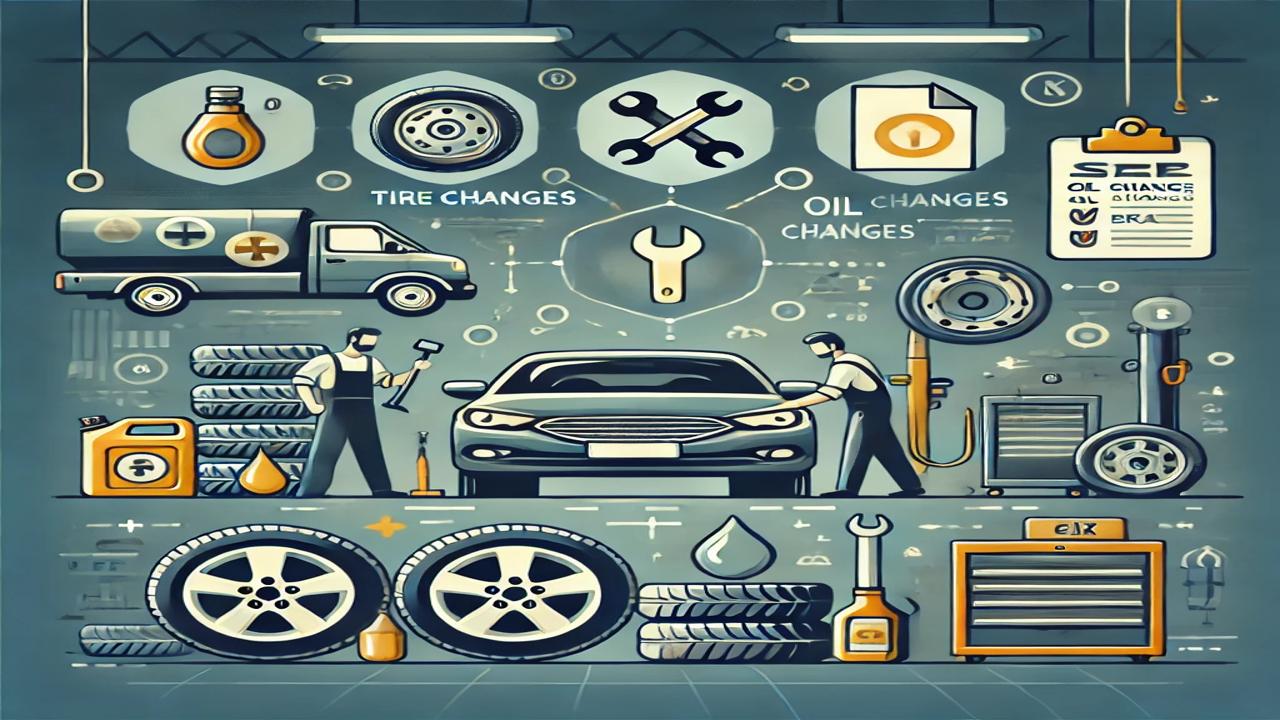What You Need to Know About Car Maintenance: Ways to Keep Your Vehicle Healthy for a Long Time

Owning a car comes with responsibilities that go beyond just driving. Taking care of your car is essential not only for your safety but also for extending the lifespan of your vehicle. Regular maintenance improves the car’s performance and prevents major breakdowns. In this blog post, we will explore the key aspects of car maintenance that you should pay attention to.
1. Oil Change
Motor oil functions as the heart of your vehicle. For the engine to work properly, sufficient lubrication is necessary. Oil changes prevent the engine from overheating and reduce friction. Generally, oil changes should be done every 5,000 to 10,000 kilometers, but it is important to follow the intervals specified in your vehicle's manual.
2. Tire Inspection and Replacement
Tires are one of the most critical elements for your vehicle’s grip on the road. You should regularly check the tread depth, air pressure, and wear of your tires. Low tire pressure decreases fuel efficiency, while excessive air pressure can cause premature tire wear. Also, remember to replace your tires at regular intervals.
3. Brake System Check
Brakes are one of the most important safety features of your vehicle. Proper brake function is vital to prevent accidents. If you notice any signs of wear on the brake pads, replace them immediately. Additionally, the brake fluid level and quality should be regularly checked.
4. Battery Check
The battery is necessary for your vehicle’s electrical system to function. Batteries typically last between 3 to 5 years. Regularly checking your battery’s charge and connections helps prevent electrical problems. If you notice corrosion or leaks, timely intervention is essential.
5. Cooling System and Antifreeze
The cooling system must function correctly to prevent your engine from overheating. Antifreeze prevents the engine from becoming too hot and ensures the efficient operation of the cooling system. Regularly check the antifreeze levels and top up when necessary.
6. Air Filter
To ensure the engine runs efficiently, clean air filters are necessary. Dirty air filters block airflow to the engine and can increase fuel consumption. Check the air filter regularly and replace it when it’s dirty.
7. Lights and Headlights
Headlights and other lights provide visibility for your vehicle and make nighttime driving safe. Ensure that your headlights and signal lights are working properly. Also, make sure that the lights are clean and positioned correctly to avoid obstructing your view.
8. Transmission Fluid
Smooth shifting of gears is critical to your vehicle’s overall performance. Low transmission fluid can cause difficulties in gear changes. To ensure the transmission works properly, check and change the transmission fluid at regular intervals.
9. Radiator and Coolant
The radiator prevents the engine from overheating. Regularly check the coolant level. Low coolant levels can lead to engine overheating and severe damage.
10. Exterior Cleaning and Protection
Regularly cleaning your car’s exterior serves both aesthetic and protective purposes. Particularly in salty road conditions or harsh weather, cleaning your car’s undercarriage and exterior helps prevent rusting. Applying quality wax also prolongs the paint’s life and prevents dirt from accumulating.
11. Periodic Inspections and Scheduled Maintenance
Don’t neglect your vehicle’s periodic maintenance. Every car needs regular inspections at intervals recommended by the manufacturer. These checks ensure the proper functioning of key components like the engine, transmission, steering, and suspension. Such maintenance prolongs your vehicle’s life and ensures better performance.
12. Review Your Driving Habits
One way to extend the life of your vehicle is to adopt proper driving habits. Avoid sudden accelerations and hard braking. Driving calmly and carefully ensures the longevity of the engine and brake system.
Conclusion
Car maintenance is not only the responsibility of car owners but also a critical factor for a safe driving experience. Regular maintenance extends the lifespan of your vehicle, improves fuel efficiency, and ensures driving safety. By following the maintenance steps mentioned above, you can keep your car healthy for a long time and avoid costly repairs. Remember, taking care of your vehicle is the best way to enhance your driving experience and make your journeys safer!










